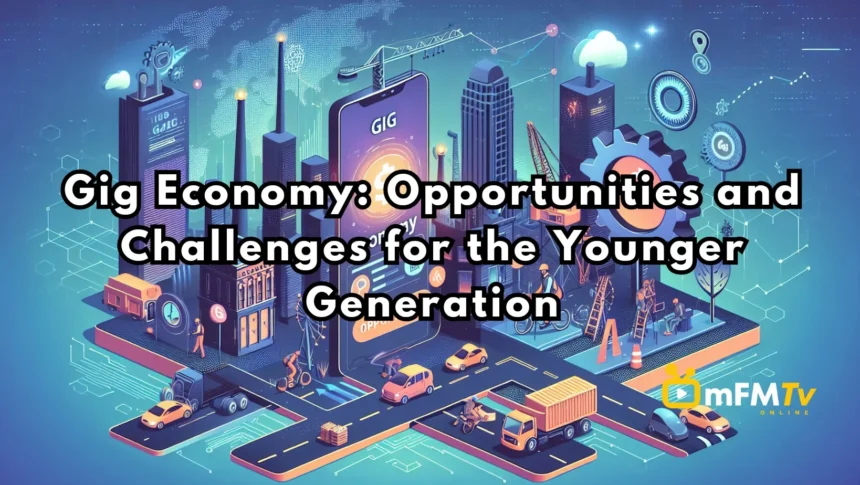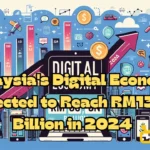The gig economy has become a significant trend in today’s global workforce, driven by technological advancements, evolving work preferences, and the demand for flexibility. This shift from traditional full-time employment to short-term, project-based work offers unique opportunities and challenges, especially for the younger generation. Let’s explore the gig economy’s impact, its benefits, and the obstacles it presents to young workers.
What Is the Gig Economy?
The gig economy refers to a labor market characterized by temporary, flexible jobs, often facilitated by digital platforms. Workers, known as freelancers or gig workers, provide services on a project or task basis. Popular platforms like Uber, Fiverr, and Upwork exemplify this model, enabling people to work independently across various industries, including transportation, creative arts, and tech services.
Opportunities in the Gig Economy
- Flexibility in Work Hours and Location
The gig economy allows individuals to choose when and where they work. This flexibility is appealing to younger workers who value work-life balance and the freedom to pursue personal interests or further education. - Diverse Income Streams
Gig work enables individuals to take on multiple projects simultaneously, diversifying their income sources. For example, a graphic designer might work on freelance assignments while running an online shop. - Skill Development
Gig work often requires workers to adapt quickly to new tasks, develop industry-specific skills, and stay updated with trends. This experience is invaluable for personal and professional growth. - Low Entry Barriers
Many gig opportunities require minimal qualifications, making it easier for young people, including students or recent graduates, to enter the workforce. Platforms like DoorDash or freelance writing websites provide accessible starting points. - Entrepreneurial Spirit
The gig economy fosters a sense of entrepreneurship. By managing their schedules and seeking clients, young workers learn how to market themselves, negotiate rates, and deliver quality work.
Challenges in the Gig Economy
- Income Instability
Gig workers often face inconsistent earnings, as their income depends on the availability of gigs and demand for their services. This unpredictability can make budgeting and financial planning challenging. - Lack of Employment Benefits
Unlike traditional employees, gig workers are typically not entitled to benefits like health insurance, paid leave, or retirement plans. This lack of a safety net can lead to long-term financial insecurity. - Workplace Protections
Gig workers often operate outside the framework of labor laws, leaving them vulnerable to unfair practices, such as abrupt contract terminations or underpayment. - Overwork and Burnout
The pressure to secure gigs and meet deadlines can lead to overwork. Many young gig workers juggle multiple jobs, which may negatively affect their mental health and overall well-being. - Competition and Low Pay
With the gig economy’s global reach, workers often face stiff competition. This saturation can drive wages down, especially in fields like graphic design or writing, where platforms often undercut pricing. - Limited Career Progression
While gig work offers immediate earnings, it may not provide clear career progression paths or long-term opportunities, which can be a drawback for those seeking stable growth.
How Can the Younger Generation Succeed in the Gig Economy?
- Develop In-Demand Skills
Investing in skills like coding, digital marketing, or graphic design can open up high-paying gigs. Continuous learning through online courses and certifications is essential. - Build a Personal Brand
Gig workers benefit from establishing a strong online presence, such as creating a professional website or maintaining an active portfolio on platforms like LinkedIn or Behance. - Manage Finances Wisely
Setting aside savings, diversifying income streams, and investing in self-funded benefits like insurance can help mitigate financial instability. - Leverage Networking Opportunities
Building relationships within the industry can lead to better gig opportunities. Attending events or joining online communities tailored to gig workers can be beneficial. - Balance Work and Personal Life
Setting boundaries and taking breaks can help prevent burnout. Effective time management tools and techniques are essential for long-term success.
Future Outlook of the Gig Economy
As the gig economy continues to grow, it is likely to undergo significant changes, such as improved regulations, enhanced digital platforms, and better support systems for gig workers. Policymakers and companies may introduce measures to ensure fair treatment and access to benefits for gig workers, making this sector more sustainable for the younger generation.
Conclusion
The gig economy offers immense potential for young people to explore flexible, independent work arrangements while gaining valuable experience and income. However, it comes with its share of risks, such as financial insecurity and lack of stability. By staying proactive, building relevant skills, and managing their careers strategically, the younger generation can thrive in this dynamic and evolving work environment.




